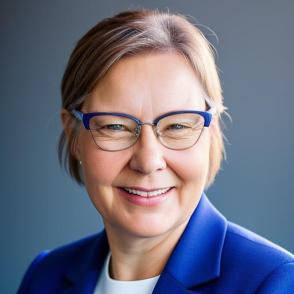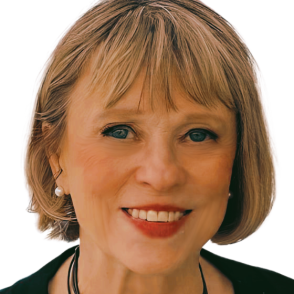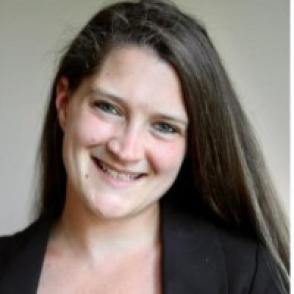Kathy Magnusson, M.Ed., is a speaker, trainer, consultant, and the founding director of Wildewood Learning. With over 25 years in education, she combines expertise in trauma-informed practices, nonviolent communication, and strengths-based leadership to empower professionals serving families, children, and youth. A former licensed public school teacher with a master's degree from the University of Minnesota, Kathy champions resiliency-based approaches, believing that when leaders and staff thrive, they can better support their communities.
Envision Access Conference
2025 VIRTUAL ENVISION ACCESS CONFERENCE
The Virtual Envision Access Conference is an opportunity for members of the Tri-State to increase awareness and understanding of trends in addressing the needs of students with disabilities.
The conference will take place Friday, March 7, 2025, from 10 a.m. to noon.
Agenda
Session 1: 10 – 11 a.m.
Embracing Diversity: Strength-Based Learning with Neurodivergent Learners
Presenters: Kathy Magnusson, M.Ed., and Monica Cochran, M.Ed.
Session 2: 11 a.m. – 12:05 p.m.
Equitable Education for Neurodivergent Learners
Presenter: Lindsay Rice
2025 Presenters


Monica Cochran, M.Ed., has spent over 40 years helping learners of all ages and abilities thrive in educational, hospital, and business settings. Through her private practice, Learning Without Borders, she works with learners, caregivers, and educators worldwide. She holds a Bachelor of Science from the University of Pittsburgh in child development, social work, and early childhood education, a master’s in special education from Eastern Michigan University, and certifications in Montessori education, learning disabilities, and emotional impairment. An Advanced DIR practitioner and SSP provider, Monica has also supported brain injury survivors and individuals with developmental challenges since 1997, inspired by her youngest son’s journey.

Lindsay Rice holds a bachelor’s in Speech and Hearing Science and a master’s in Childhood Education from SUNY Cortland. With over 11 years of teaching experience, she is a passionate advocate for neurodivergent learners, drawing from her own experiences as an individual with ADHD and Autism. She has presented nationwide for organizations such as the NEA, OEA, ATE, OASSA, and NSA, recently speaking with preservice educators at Ohio University. As a member of NEA Leaders for Just Schools, her work focuses on advancing equitable education, blending personal narratives with scientific research to equip educators with practical strategies for supporting neurodivergent students.
-
Conference Expectations and Goals
- Create a networking event that helps to foster working relationships between guidance counselors, interventions specialists, and higher education accessibility/disability services administrators
- Accessing and embracing the use of technology.
- Learn best practices related to students with disabilities.
- Develop community connections to increase educational attainment for students with disabilities.
-
Who Should Attend
- Guidance counselors, Intervention specialists and Enrollment services
- Parents of students with disabilities
- Educators and Administrators
- Higher Education Professionals
- Human Resource Professionals
- Community Leaders, Business Owners and Non-Profit Executives
- Health Care & Social Services Professionals
- Hospitality
- Students (Secondary & Post-Secondary)
- Government
